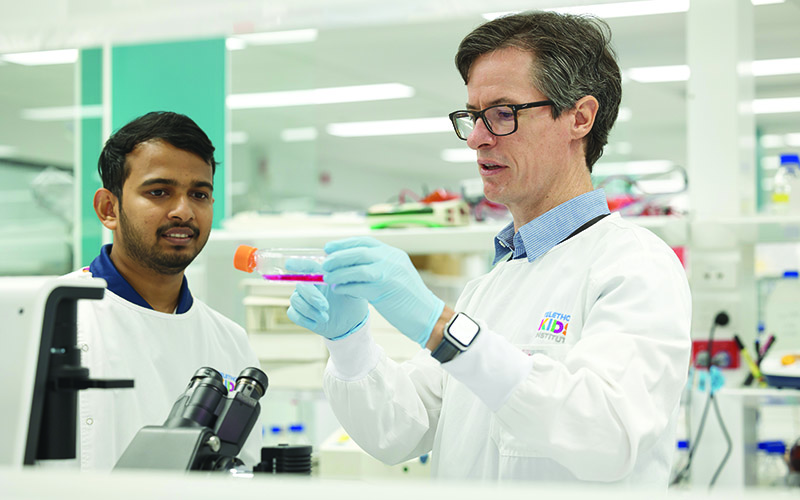Search
Strengthening the capacity of Aboriginal children, families and communities
Improving the educational experiences of Aboriginal children and young people
The Health of Aboriginal Children and Young People
This resource kit for Aboriginal health workers is an exciting milestone in the Rio Tinto Aboriginal Health partnership with The Kids Research Institute Australia
As part of the discussions with Kimberley Aboriginal Medical Service (KAMS) to establish the Broome site of the WAAHKN it has been agreed to establish...

Although a staple of modern medicine, the benefits of antibiotics are waning thanks to overuse and the increasing ability of bacteria to dodge them – known as antimicrobial resistance (AMR).

Despite the risk of having a hypo (low blood glucose levels), Gina said she refused to let T1D stop her from exercising.
In Australia, substance use disorders disproportionately affect people living in rural and remote areas. Patients with substance use disorders who receive palliative care have complex, often unmet, end-of-life needs. There is scarce evidence on the management of patients with substance use disorders in palliative care, and there is no consensus on the model of care to assist general practitioners manage their patients. This is particularly salient for general practitioners in rural areas, who provide most of the palliative care to their patients.
Shared decision-making between patients and primary healthcare professionals positively impacts health outcomes. However, people with intellectual disability face additional barriers and require supported shared decision-making (SSDM) to participate. Little is known about how healthcare professionals use SSDM with this population. This paper explores the facilitators and barriers experienced, and strategies/resources employed by healthcare professionals working with people with intellectual disability.
Bringing optimised coronavirus disease 2019 (COVID-19) vaccine schedules to immunocompromised populations (BOOST-IC) is a multi-site, adaptive platform trial designed to assess the effect of different booster vaccination schedules in the Australian immunocompromised population on the immunogenicity, safety and cross-protection against COVID-19 caused by severe acute respiratory syndrome coronavirus 2 (SARS-CoV-2) and its variants.
